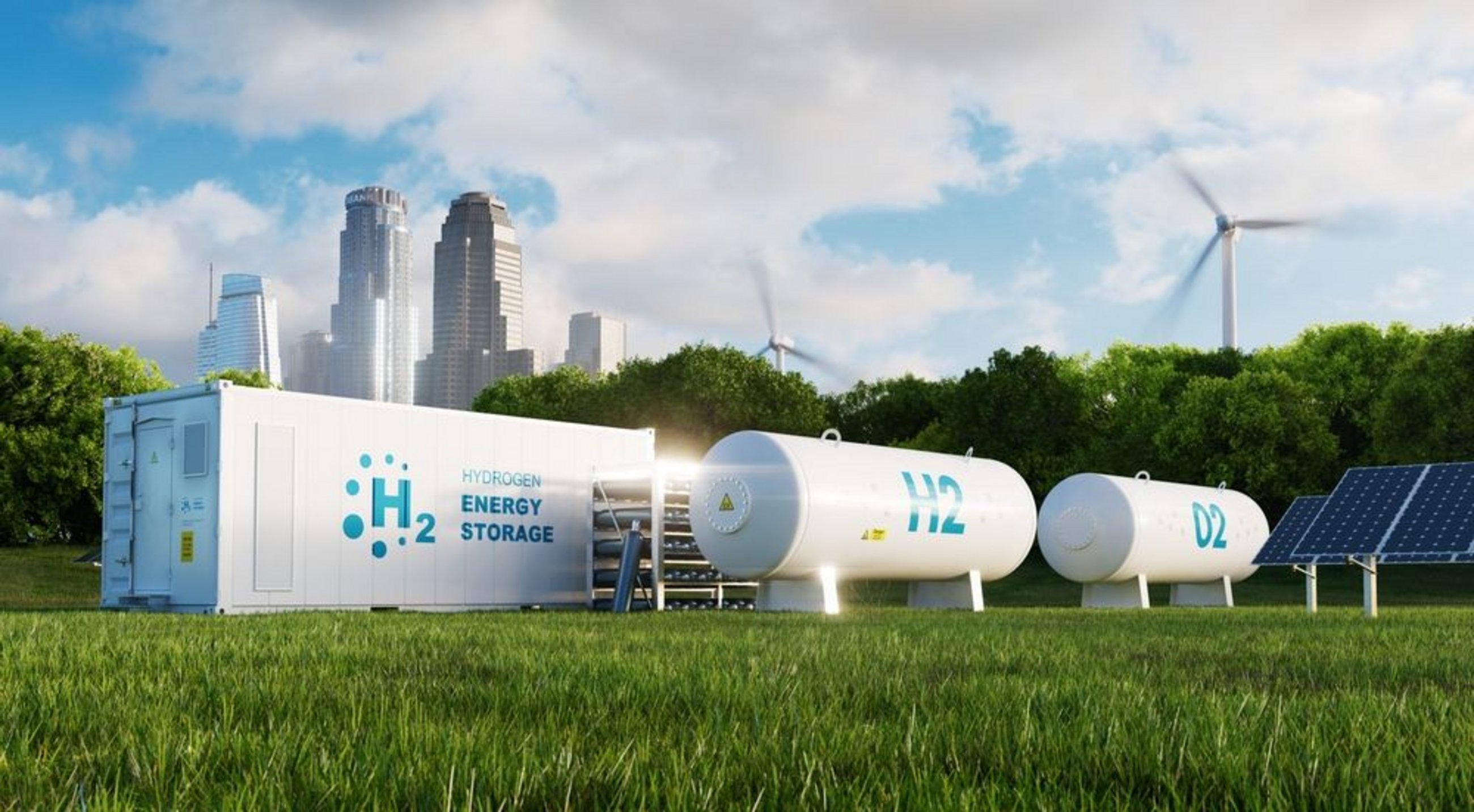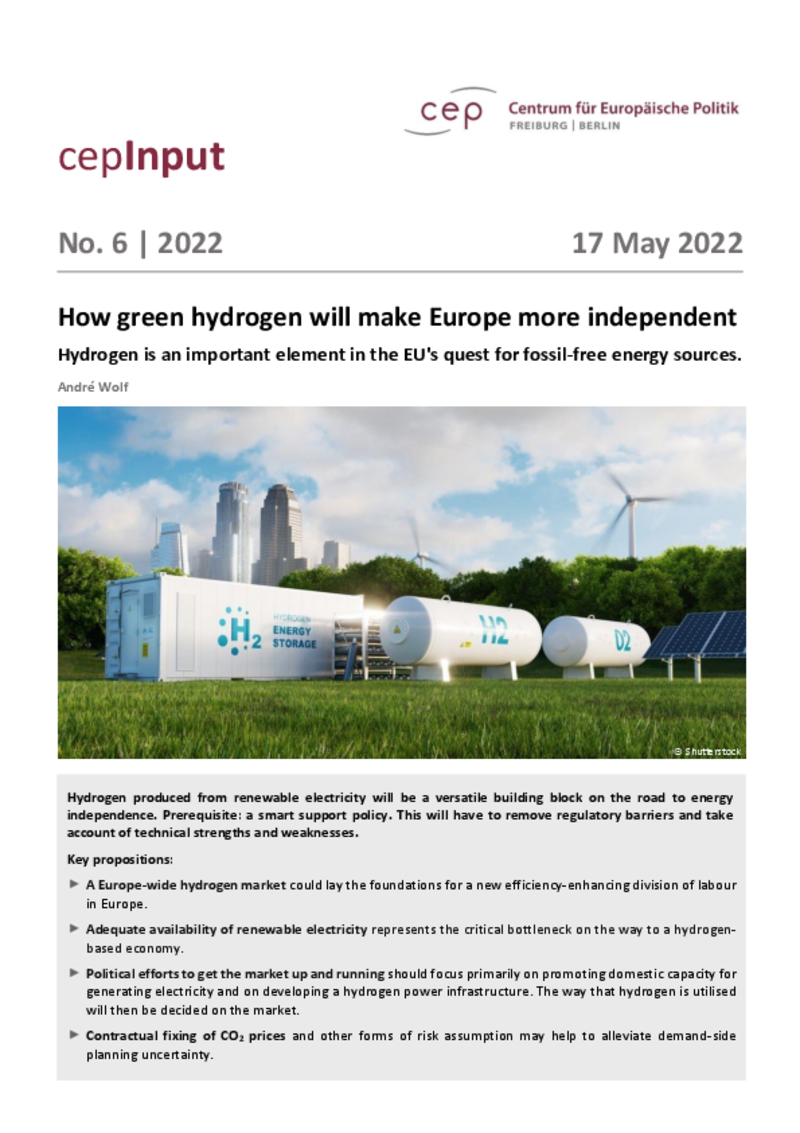
Energy
How green hydrogen will make Europe more independent (cepInput)
cepInput
"Green hydrogen produced from renewable electricity will be a versatile building block on the tedious way to energy independence," says André Wolf. The cep economist has studied the economic and technological significance of green hydrogen. A prerequisite for widespread implementation, he says, is a smart support framework. "It must remove regulatory barriers and take into account technical risks and strengths," the scientist explains.
According to Wolf, a Europe-wide hydrogen market can lay the foundations for a new, efficiency-promoting industrial division of labor in Europe. However, the renewable electricity required for this is still far from being sufficiently available. The necessary infrastructure is lacking, he said. "The exact type of utilization will then be decided on the market." Technical limitations and competition with more energy-efficient climate-neutral technologies place tight limits on green hydrogen in its function as a multi-purpose tool for the energy transition, ascribed by many experts.
Wolf sees opportunities as a raw material, as a reducing agent, and as a fuel in areas where batteries cannot reasonably be used. "Its use is thus likely to be limited to the industrial sector, long-term energy storage and certain segments of the transport sector, especially air and sea transport and long-distance freight transport."
Download PDF
| How green hydrogen will make Europe more independent (cepInput) (publ. 05.17.2022) | 716 KB | Download | |
 | |||



